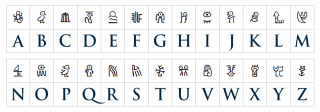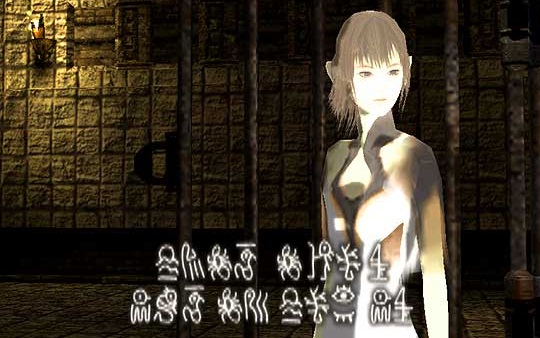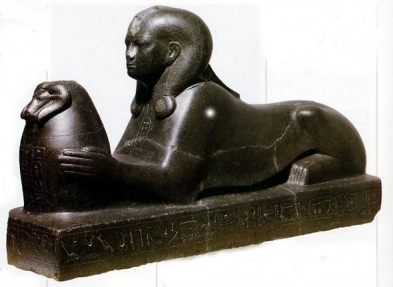Does Fez deserve so much praise for its cryptographic depth?
By onan 16 Comments
First and foremost, since people reading this will be wondering: I've got my 209.4% completion rating, and yes, I did look up the translations. No, I don't feel bad about having cheated. I'll explain why.
Looking at Fez as a platformer, it has everything I love. Bright colors, great music, cute characters, charming animations, the works. The spacial puzzles were loads of fun. As a game, I think Fez has great style and is genuinely enjoyable. As a game.
My issue with Fez, and why everyone seems to love Fez so passionately, is the cryptography. It doesn't really "fit" into the world. After having an epiphany (or finding the "rosetta stone") and realizing the markings actually represent the alphabet and the groupings are all English words, it just becomes a time-intensive process of converting messages one by one. It's busy work. Not to read too far into it, but without this unnecessary layer of obfuscation, the game would have been a complete non-event except for the one poorly constructed main riddle (the "security question") that requires fourth wall-breaking information to complete it. (Ok, this is getting a little silly. Let's assume some minor spoilers at the least about the nature of the puzzles from here on in or this entire blog will end up redacted.)
I was kind of hoping the ancient culture of Zu would have their own language, but instead, it's like going back to ancient Egypt only to discover they all actually spoke English and the hieroglyphs were just them being really keen on Wingdings as a font.
I guess it does work as a cryptography "puzzle," but the framing device is a little weird. Considering the point of crypography is to hide things, yet they printed it up on huge walls and made signs out of it, it doesn't make much sense. This big-headed Zu society still speaks in it. It's like finding a colony of people speaking pig latin. It's just plain odd. The number system was also a little strange, considering it was just new symbols but still base 10 math, but that's outside of the scope of this blog post. (The directional system was great though. It was incredibly clever and true to the world, like a cursive tetris language.)
I'm not sure what I expected or wanted out of Fez when I learned about the writing system. Perhaps a more organic way to communicate through signage in Fez might have been to introduce a fictional, but fleshed-out language. Or Phil Fish could have done everything exactly the same, except made the language an encoded form of Esperanto, making the English the village folk speak a more believable evolution from a block-based root language. (Esperanto -> English).
Or he could have taken the Myst route like Cyan did with the creation of the D'ni language . Tolkien did it too, with all of his works, especially those taking place on Middle-Earth. He was quoted as saying about his work, "The invention of languages is the foundation. The ‘stories’ were made rather to provide a world for the languages than the reverse." That doesn't seem to be the case here. The Zu language isn't really at the core of anything and really feels like it was added on late in development to provide some superficial depth to the world that people might get caught up in. It certainly succeeded in that regard, but I don't know if I feel it was really deserved.
After the initial feeling of victory of puzzling out a cipher, it just becomes busy work. One moment of realization, and then slow, laborious work, instead of what might have been more appropriate: context clues to understand a new language with everything you need as far as vocabulary and a basic grammar somewhere in the game world. The game is missing that linguistic rush you get over and over when figuring out things in another language on your own, sometimes getting by on the skin of your teeth with only partial understanding of what you're reading or saying. I guess the closest you'll see in most modern games is the unapologetic naming of Witcher 2 spells, when you start adding that vocabulary in your head of what "Aard," "Igni," "Yrden" and "Quen" mean in the context of the game. Sure, they could have said "Fireball" and "shield," but the world would have felt less alive because of it. (It's also why Goku sounds like more of a badass yelling "Kamehameha!" instead of "Turtle Destruction Wave!")
All due respect to Phil Fish, I know I definitely couldn't have made this at all, but it's just the implementation that gets to me. When so many things in this world are legitimately greater than the sum of their parts, to me Fez appears to be the exact sum of it's constituent parts. The whole thing just struck me as something that could most likely only be manufactured by someone who only speaks English, and most fully be appreciated by those that only speak English. If we're being reductive, all he did was create an illegible font that might look at home in the block-derived world of little Gomez.

The closest comparison I can come up with is Kei Kuwabara's work in Ico, creating an otherworldly-sounding language for Yorda, both spoken and written (the subtitles are in a strange runic language). What he ended up doing was converting the Japanese to Romanji (Japanese symbols to the phonetic pronunciation using the western alphabet), flipping the order of the letters around, adjusting the spelling so they're pronounceable, and converting the roman characters into basic pictographs similar to the origins of Kanji, but using English words as the root. A very simple drawing of an ant represents the letter A, a small bird represents B, and so on. It adds the complexity of multiple languages, but in the organic way borrowed words become butchered by the limitations of the phonemes in a language and vocalization tendencies of speakers. Just the act of mirroring words and creating a somewhat logical pictographic language is pretty fascinating.

Even just unexpected random mirroring can be appreciated in the right light if very little emphasis is placed on it. For example, it was kind of the (hor)crux of the first Harry Potter movie (hoho), thinly veiling the true nature of the "Mirror of Erised."
Here's the TL;DR: There are 3 locations in the game world that give you the cipher for all of the written language in the game, assuming you're aware of what you're looking at. It's a needless level of complexity added for the sake of making the game more complex that also makes a lot of assumptions about the player. I don't think it makes Fez a bad game at all, I actually really loved everything else about it. The problem is that back half of Fez is completely unplayable by people who don't speak English or speak English as a second language, specifically if they don't know the main cipher phrase, no matter how dedicated they are. It fails in the promise of a logical means of progression when everything else in the game points to logic being at the core of what Fez is.
Put another way, would anyone have enjoyed this game nearly as much if the developer was a French Ubisoft team, for example, and instead of needing to know the pangram "The quick brown fox jumps over the lazy dog" the phrase was "portez ce vieux whisky au juge blond qui fume" (Carry the old whiskey to the blond judge who smokes.")? No one could reasonably be expected to know that. Even in English, how many people have heard "Sphinx of black quartz, judge my vow"?

Just saying.
